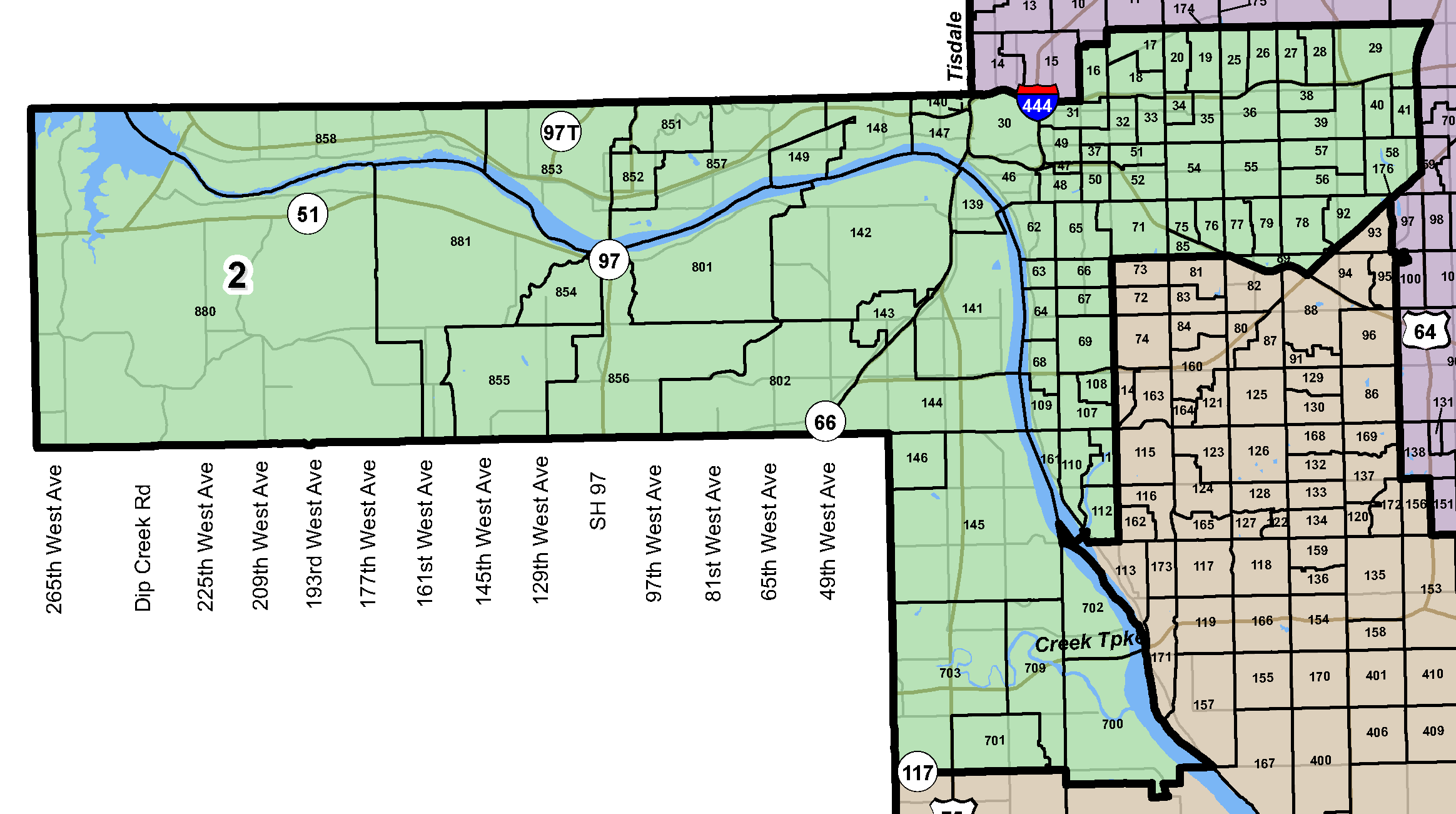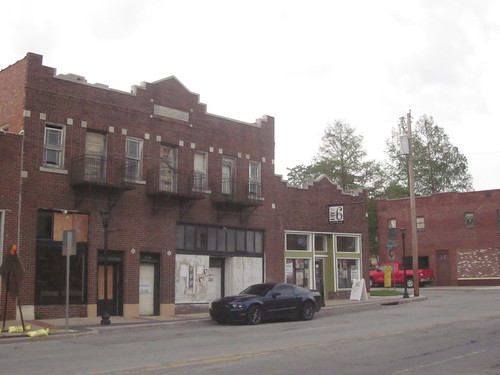April 2012 Archives
In case you missed it: In the coming weeks, Osage Casinos are bringing in three legendary singers for free, all-ages concerts.
 This Friday, May 4, 2012, Ray Price will be performing at the Osage Casino west of Bartlesville. Ray Price was a pioneer of the honky-tonk sound in the 1950s; in the '70s he traded in his Nudie suit for a tuxedo, scoring big countrypolitan hits with "For the Good Times" and "Night Life." At 86, he's still going strong, as you can see from his April 2011 appearance on Huckabee, singing two of his big '50s hits "Heartaches by the Number" and "Crazy Arms."
This Friday, May 4, 2012, Ray Price will be performing at the Osage Casino west of Bartlesville. Ray Price was a pioneer of the honky-tonk sound in the 1950s; in the '70s he traded in his Nudie suit for a tuxedo, scoring big countrypolitan hits with "For the Good Times" and "Night Life." At 86, he's still going strong, as you can see from his April 2011 appearance on Huckabee, singing two of his big '50s hits "Heartaches by the Number" and "Crazy Arms."
 On Saturday, May 12, 2012, B. J. Thomas will be performing at the Osage Casino in Pawhuska. B. J. Thomas had big pop hits in the '70s with the Oscar-winning "Raindrops Keep Falling on My Head," "Hooked on a Feeling" (with its distinctive sitar solo), and "Another Somebody Done Somebody Wrong Song." In more recent years, Thomas's recordings have focused on country and gospel music.
On Saturday, May 12, 2012, B. J. Thomas will be performing at the Osage Casino in Pawhuska. B. J. Thomas had big pop hits in the '70s with the Oscar-winning "Raindrops Keep Falling on My Head," "Hooked on a Feeling" (with its distinctive sitar solo), and "Another Somebody Done Somebody Wrong Song." In more recent years, Thomas's recordings have focused on country and gospel music.
Here he is on BBC's Top of the Pops from 1970:
 On Saturday, May 19, 2012, Ray Stevens will be performing at the Osage Casino west of Sand Springs, north of U. S. 412 / U. S. 64 at the 129th West Ave. exit. Ray Stevens has had hits with a wide range of material over the years from message songs like "Everything Is Beautiful," "Mr. Businessman," and "Would Jesus Wear a Rolex on His Television Show," to novelty tunes like "The Streak" and "Mississippi Squirrel Revival," to creative covers like his banjo-fired take on "Misty" and his doo-wop version of "Indian Love Call," and, lately, musical political commentary on everything from Obamacare to illegal immigration.
On Saturday, May 19, 2012, Ray Stevens will be performing at the Osage Casino west of Sand Springs, north of U. S. 412 / U. S. 64 at the 129th West Ave. exit. Ray Stevens has had hits with a wide range of material over the years from message songs like "Everything Is Beautiful," "Mr. Businessman," and "Would Jesus Wear a Rolex on His Television Show," to novelty tunes like "The Streak" and "Mississippi Squirrel Revival," to creative covers like his banjo-fired take on "Misty" and his doo-wop version of "Indian Love Call," and, lately, musical political commentary on everything from Obamacare to illegal immigration.
I think of "Everything Is Beautiful" as the theme song for the summer of '71. (I have a specific memory of hearing it over breakfast in a diner in Sallisaw, Oklahoma, on our way to visit my grandparents in Fairfield Bay, Arkansas. It was one of those diners with the neon-trimmed clock with flipping ad cards.)
Here's Stevens' satirical take on post-mortem voter fraud -- "Grandpa Voted Democrat":
MORE: Pop music historian Dawn Eden's tribute to Ray Stevens' 1968 album Even Stevens and The Night Ray Stevens Cleared the Dance Floor.
Among other steps, AfP is calling on President Obama to stop playing politics with American energy and approve construction of the Keystone XL pipeline.
The ad makes multiple references to a September 9, 2010, story in the Washington Times, which establishes that the funds created more jobs abroad than at home.
Only about $20 billion of the allotted funds have been spent - the slowest disbursement rate for any category of stimulus spending. Private analysts are skeptical of White House estimates that the green funding created 190,700 jobs.The Department of Energy estimated that 82,000 jobs have been created and has acknowledged that as much as 80 percent of some green programs, including $2.3 billion of manufacturing tax credits, went to foreign firms that employed workers primarily in countries including China, South Korea and Spain, rather than in the United States.
Peter Morici, a business professor at the University of Maryland, said much of the green stimulus funding was "squandered."
"Large grants to build green buildings don't generate many new jobs, except for a few architects," he said. "Subsidies for windmills and solar panels created lots of jobs in China," but few at home....
Mr. Sherraden said the problem with job leakage overseas promised only to get worse, because governments in Europe and Japan - which in years past spent lavishly on renewable energy - now are drastically cutting back their green subsidies as they try to pare enormous budget deficits.
With the United States left as the only major developed country still flooding the market with government funding, competition from overseas suppliers promised to be more fierce than ever, Mr. Sherraden said.
"It is impossible to guarantee that clean-energy stimulus is not leaked abroad," he said. "We have to recognize that we are funding job-creation programs in Germany, Spain, Japan and China."
 Normally, I wouldn't post about Democrat Party politics in Georgia, but there are some interesting similarities to the recent allegations about former Oklahoma Democrat Party chairman and former North Carolina Democrat Party executive director Jay Parmley.
Normally, I wouldn't post about Democrat Party politics in Georgia, but there are some interesting similarities to the recent allegations about former Oklahoma Democrat Party chairman and former North Carolina Democrat Party executive director Jay Parmley.
Consider this as a possible pattern: A senior Democrat state party staffer gets caught in some sort of particularly nasty legal trouble, something that reflects very negatively on his character, on the party, and on the judgment of the party leaders who hired him, but instead of giving him the heave-ho, party leaders and donors help with the cover up, including spreading a bit of money around. Maybe they even find him a nice gig somewhere else. The parallels aren't perfect in each of these cases, but there seem to be some resemblances. And it raises the question: Why would party leaders and donors find it worthwhile to spend money and take the risk to protect such a malefactor?
The latest situation: It appears to be the case that the political director of the Georgia Democratic Party, Ali Rashad Richey, has a long history of arrests and jail time, as recently as 2010, when it appears that he spent nearly a month in the DeKalb County Jail, the result of a probation violation from an earlier offence. At the same time, Richey was being paid $4,000 a month by the Gail Buckner for Georgia Secretary of State campaign. Buckner was a long-time state representative, was the Democrat nominee for Secretary of State in 2006 but lost the general election, won a state senate seat in 2008, and ran for Secretary of State again in 2010, losing the nomination in a runoff.
Andre Walker Georgia Politics Unfiltered began writing about this story about a week ago, reporting that Richey had been arrested 12 times in Fulton and DeKalb County, going back to 1998. But Walker provided no links or specifics to back up the claims he was making.
Blogger Nice Deb began doing some digging and came up with the specifics, which she documents in her story about Georgia Democratic Party Political Director Rashad Richey.
I did some digging, too, and found a positive link between Rashad Richey the political operative and the Ali Rashad Richey named in these court records. (*See NOTE at end of this entry regarding the word "recidivist.") The address listed on that 2010 jail booking record is a house at 1834 Carla Drive, Morrow, Clayton County, Georgia.
The house is owned by Gail Buckner (go here to search the county land records), and it's the same address listed on the Buckner campaign's 1st quarter 2010 expenditure report, as the address of "Raschad Richey," paid $4,000 on January 29, February 26, and March 26, 2010, for "campaign work." It was also listed as her "district office" during her stint as state senator.
(Note: A free login here is required to view DeKalb County arrest records, such as the above link.)
The same address was used by Richey to register Democracy In, LLC on March 3, 2010, just two days after the release date in the above-mentioned DeKalb County arrest record.
Thinking through the long list of Oklahoma Republican Party chairmen, vice chairmen, and staffers I've dealt with over the years, I don't think any of them had more than a speeding ticket, much less a long rap sheet. And I can't think of any candidate who'd have been willing to pay a political consultant for cooling his heels for a month in the pokey.
MORE: Warner Todd Huston comments:
For some unknown reason, the state Democrat Party of Georgia's Political Director, one Ali Rashad Richey, is a man with a long arrest record and no one seems the last bit worried about it in the Peach State -- neither politicians nor the media. This man's arrests are for such offenses as burglary, assault, battery, driving offenses, and violation of probation. In fact he's been arrested at least 12 times in the last decade.Are Georgia Democrats so used to convicted criminals in their midst that no one cares about this?
Photo at top from the DeKalb County website
NOTE: In the original version of this entry, I used the phrase "Ali Rashad Richey the recidivist" as an alliterative allusion to the fact that Richey had been arrested numerous times, as documented by DeKalb County jail records noted above. I am led to understand that in certain jurisdictions the term "recidivist" has a technical meaning that applies only to those convicted of felonies. This was NOT my understanding of the word when I used it, and it was NOT my intention to imply that Richey had been convicted of or charged with any felony offense. The term "recidivism" is not defined in Oklahoma law as far as I have been able to determine, and it is mentioned a few times in Oklahoma statutes as an undesirable phenomenon to be measured and deterred, referring generically to violating the law after some previous violation. To avoid any misunderstanding, I have replaced the word "recidivist" with a phrase less likely to cause confusion.
Legendary Tulsa TV weatherman Don Woods is "gravely ill", but "in good spirits" according to a report on KTUL.com:
Don is now 84 years old. He spoke with Channel 8 News Director Carlton Houston Tuesday and says he's been in good spirits recently and enjoying the company of family and friends.
Don Woods was the meteorologist for KTUL channel 8 from its first sign-on in 1954 until his retirement in 1989, and every weathercast featured an impromptu cartoon of a character named Gusty illustrating the forecast. The cartoon would go to a lucky viewer whose name was announced on the air. Our wild weather is an inherently interesting topic, but Don Woods' lighthearted and friendly manner made it fun to hear about cold fronts and high pressure cells as he sketched them on the US map. I imagine I wasn't the only Tulsa kid inspired to ask for a home weather kit for Christmas by Don Woods and his KOTV contemporary Lee Woodward. It was a golden age for local TV, a time of homegrown creativity, replaced too soon by cookie-cutter consultant-driven content.
Woods often made appearances at churches and schools; I remember him doing a presentation at our little church sometime in the '70s, and everyone left with an original Gusty sketch. Since his retirement, Don has often appeared at the Tulsa State Fair and trade shows on behalf of a local company, drawing Gusty and visiting with the fans who grew up watching him. In 2005, Gusty was designated as the official cartoon of the State of Oklahoma.
As concerned as he was about today's weather, Don Woods's greater concern for his audience is epitomized in the title of a little booklet featuring Gusty as its main character: "Do You Know How to Have a Happy Forever?" You can read the booklet online (in English, French, Spanish, and Russian), download a printable digital copy, or order copies in bulk to give away.
It was touching that the KTUL.com story made special mention of the booklet and provided a direct link.
Don wants everyone to know that Gusty -- who is now the official state cartoon of Oklahoma -- is still uplifting people and making them happy to this day.Don is also well known for a little orange booklet. It's called, "Do you know how to have a happy forever?"
It features Gusty's message that God loves you. Over the years, Don has passed out thousands of these books around the world.
You can find information about the book at his website, www.gusty.us/books.htm. There, you can also leave a note of encouragement for Don.
You can also leave a message for Don in the comments on the KTUL.com story, and they'll be passed along to him.
Please join me in praying for Don Woods's health, and take a moment to leave a happy memory and a kind word for him.
MORE: Tulsa TV Memories has more on the history of TV weather in Tulsa, with an eight-minute TCC video of Don Woods reminiscing about his years covering weather on TV. I especially enjoyed hearing about the origins of Tulsa's first TV weather radar and the filming of the legendary "The News Guys" western-style promo.
Photo of Sid's Cafe, Holmfirth, Yorkshire, by Flickr user nechbi, Creative Commons Attribution 2.0 Generic license (CC BY 2.0)
One of my favorite TV series is the long-running BBC sitcom "Last of the Summer Wine," about the exploits of three old men with plenty of time to get into mischief in a picturesque Yorkshire village and the surrounding hills. The program ran for 37 years and continues in reruns around the world. (Locally, OETA runs two back-to-back episodes nightly Monday through Thursday at 11 pm.)
The people of Holmfirth, the principal filming location for the series, has done an admirable job of turning fan interest into tourist dollars without ruining what made the town an attractive filming location and place to visit.
One frequently seen location, Nora Batty's cottage, is available as a self-catering accommodation sleeping six, with weekly rates ranging from £305 in winter and late fall to £661 in peak summer season. (That's about $500 to $1100 at current exchange rates.)
Down the steps, just where it should be, is Compo's tatty flat, now an exhibition with props from the show, and next door to that, the Wrinkled Stocking Tea Room, where you can have a traditional Yorkshire breakfast (bacon, egg, sausage, tomato, beans, mushrooms, and black pudding) or afternoon tea. There's a gift shop, too.
The Automobile Association describes a five-mile walking tour around Holmfirth that will take you up hill and down dale, over stiles and through fields and woods.
You can have lunch at Sid's Cafe, too, and just outside catch a bus tour of Summer Wine filming locations.
Photo of Holmfirth, Yorkshire, by Flickr user Tim Green aka atoach, Creative Commons Attribution 2.0 Generic license (CC BY 2.0)
A bit busy tonight, so here's Tulsa music legend Rocky Frisco performing an original song, "The Blues for You," at the Church Studio. It's an excerpt from the movie Red Dirt on 66.
And here's Rocky under his original stage name, Rocky Curtiss, from 1955, with his band the Harmony Flames, performing "Teenager in Love."
An instrumental from the same album, "Big Teddy":
 Oklahoma Speaker of the House Kris Steele has pulled a pro-life bill from the House calendar, effectively killing it for the year. SB 1433, which establishes the principle that personhood begins at conception, was, figuratively speaking, poisoned and dismembered by Steele, who claimed the support of a secret vote in the Republican House caucus, according to a story last Thursday by Pat McGuigan of CapitolBeatOK.
Oklahoma Speaker of the House Kris Steele has pulled a pro-life bill from the House calendar, effectively killing it for the year. SB 1433, which establishes the principle that personhood begins at conception, was, figuratively speaking, poisoned and dismembered by Steele, who claimed the support of a secret vote in the Republican House caucus, according to a story last Thursday by Pat McGuigan of CapitolBeatOK.
Expressing deep disappointment, state Rep. Sally Kern of Oklahoma City, a Republican, said in a statement to CapitolBeatOK, "I am pro-life and do not agree with refusing to grant a floor hearing to any pro-life bill that has gained committee approval."While I will abide by the caucus' decision, I certainly was not among those opposing the bill. And I will continue fighting for the rights of the unborn."
The legislation would have found that the "life of each human being begins at conception" and asserted the "laws of this state shall be interpreted and construed to acknowledge on behalf of the unborn child at every stage of development all the rights, privileges, and immunities available to other persons, citizens, and residents of this state."...
Speaker of the House Kris Steele informed members of the Capitol press of the GOP House caucus decision Thursday afternoon. He stressed the decision was "not made unilaterally."
There may well be a solid, substantive reason for a pro-life legislator to oppose this bill, even though this is a bill strongly supported by Oklahomans for Life, but that debate and vote should have been held openly, not behind closed doors. If I were in charge of the Oklahomans for Life scorecard, I'd have to give a demerit to every Republican member of the House and assume they voted in secret to kill the bill unless they take active, public steps to override Speaker Steele and allow the bill to be heard on the floor of the House.
Killing bills in secret out of fear for political consequences is the sort of garbage the Democrats used to pull when they had the majority. I expect better from my fellow Oklahoma Republicans, particularly in light of our strong history of passing pro-life legislation. Shame, shame, shame on Speaker Steele and his accomplices.
State Sen. Brian Crain, author of SB 1433, says that there may have been confusion about his bill:
Crain, R-Tulsa, said opponents to his bill became confused with his measure and proposals being advanced by a national group on personhood, which is supporting Oklahoma's initiative petition effort."They started mixing up one for the other and thought they were all the same," he said.
"There were some people that knew that this thing was constitutional; they just chose to not be completely open about what they thought this bill truly did."
Crain said the bill is based on a law in Missouri, which was upheld in 1989 by the U.S. Supreme Court.
MORE: State Rep. Paul Wesselhöft pins the blame for stopping the personhood bill on the State Chamber of Commerce. From his April 20, 2012, press release:
State Rep. Paul Wesselhoft said today he is disappointed that the personhood bill will not be given a hearing on the floor of the Oklahoma House of Representatives."When I ran for this office, I promised my constituents that I would be a pro-life voice in the Legislature," Wesselhoft said. "Therefore, my constituents and Republican friends deserve to know that I strongly supported, argued and voted for the Personhood bill to be heard in the Oklahoma House of Representatives.
"Unfortunately, a majority of my Republicans colleagues voted not to hear it. That bill could have sent a vital moral message that human life in the womb is not a blob of tissue but a living person created in the Image of God.
"I don't believe SB1433 presented a substantive problem but an image problem for the State Chamber of Commerce."
House leadership announced this week that Senate Bill 1433 would not be given a floor hearing in the Oklahoma House of Representatives. The legislation simply declares that the "life of each human being begins at conception" and that the "laws of this state shall be interpreted and construed to acknowledge on behalf of the unborn child at every stage of development all the rights, privileges, and immunities available to other persons, citizens, and residents of this state."
Meanwhile, although Steele claimed the bill would have no substantive effect (if not, then why kill it?), leading pro-abortion lobby group Planned Parenthood is celebrating his decision:
YOU DID IT!!!!!!!!!!!!!!!!!!!!!!!!!!!!!!!!!!!!!!!!!!!!!!!!!!!!!!!!!!!!!!!!!!!!!!!House Speaker Kris Steele... fb.me/1NiWXYIMt
— Planned Parenthood (@PPCOK) April 19, 2012
Photo from the okhouse.gov website
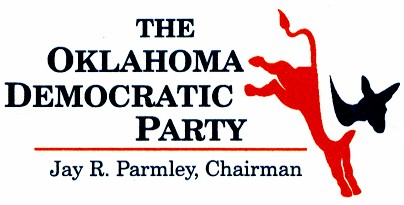 A blockbuster news item in today's Daily Caller by Matthew Boyle: Jay Parmley, former Oklahoma Democratic Party chairman, who resigned last Sunday as executive director of the North Carolina Democratic Party in the midst of allegations that he sexually harassed a male party staffer, has been accused by a long-time former girlfriend of infecting her with HIV.
A blockbuster news item in today's Daily Caller by Matthew Boyle: Jay Parmley, former Oklahoma Democratic Party chairman, who resigned last Sunday as executive director of the North Carolina Democratic Party in the midst of allegations that he sexually harassed a male party staffer, has been accused by a long-time former girlfriend of infecting her with HIV.
Rebecca Burgin, a long-time former girlfriend of former North Carolina Democratic Party executive director Jay Parmley, told The Daily Caller that she believes Parmley infected her with HIV.Parmley resigned on April 15 amid sexual harassment allegations from a former young male staffer.
Burgin, a 29-year-old Oklahoman, has shared her story with TheDC, including the revelation that Parmley's lawyer offered her health coverage, paid for by the Democratic National Committee, to manage her illness. She ultimately declined that offer, fearing it would constitute insurance fraud. Parmley, she said, abandoned her a few months later.
Burgin says that she met Parmley when she was a student in a class he taught at Oklahoma City Community College.
According to Burgin, Parmley's HIV status was discovered after he was taken to the hospital because of a debilitating illness. It was shortly thereafter that he allegedly disclosed this to Burgin, who then was tested and learned that she was HIV-positive. This occurred in 2006, during Parmley's stint as DNC liaison in Mississippi.
According to the Daily Caller story, Burgin identfied Parmley's lawyer, who made the offer of DNC-provided health coverage, as Tulsa union lawyer Jim Frasier, who was then and still is (according to his website) a member of the Executive Committee of the Democratic National Committee. According to the bio on his law firm's website, Frasier has been Oklahoma's committeeman on the DNC since 1997, and a member of the DNC Executive Committee since 2002. (This 2004 DNC roster shows Frasier as a DNC Executive Committee member for the term 2004-2008.)
"So, I sat down and wrote a letter," Burgin explained. "I laid it all out and then said I want a life insurance policy, and that I want health insurance coverage, basically, for the rest of my life.""I was not looking for money, I was not looking for some big payoff to keep my mouth shut," Burgin added. "That wasn't my concern. My concern was that my life has gotten completely blown to pieces, and I so needed to kind of figure out how I can move forward and figure this out."
Her attorney sent that letter to Parmley and "took it to a meeting with his [Parmley's] attorney, Jim Frasier."
Frasier, then Parmley's personal attorney, is currently one of 100 delegates to the Democratic National Committee.
"Frasier," Burgin continued, "came back and said, 'what we will provide for her is that she can remain on the DNC's health insurance and the DNC would pay for it' for -- I think that they said -- as long as Jay's employed there."
Keep an eye on the Daily Caller for further developments and the okdemocrat.com message board for further "I told you so"s.
BatesLine is pleased to welcome a new advertiser: John Sullivan for Congress. First elected to replace Steve Largent in a 2002 special election, Congressman Sullivan is seeking re-election to his sixth full term. His ads highlight his consistent conservative record, as evidenced by ratings by conservative watchdog groups like Numbers USA (enforcement of immigration laws), Club for Growth, Citizens against Government Waste, and National Taxpayers Union (fiscal conservative, tax and budget), National Right to Life (sanctity of human life), National Rifle Association (Second Amendment rights), and the American Conservative Union (full range of conservative issues).
I've known John Sullivan since long before I started blogging, before I became any sort of public figure. I first met him sometime in the 1990s, during his time as a state representative, when, as a member of the small Republican minority in the State House, he championed the effort to eliminate the sales tax on groceries. I encouraged him to run for State Senate when the seat opened up in 1996, but for family reasons he opted to stay in the House. When Steve Largent resigned his congressional seat in 2001 to run for governor, John phoned me, a precinct chairman, to let me know that he was running.
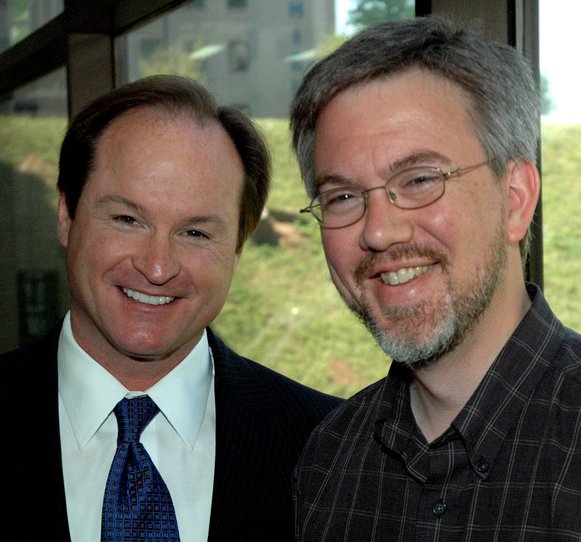 At the beginning of that special election, John Sullivan was running a distant third in the polls. First Lady Cathy Keating was the best known candidate and the odds-on favorite. But conservative grassroots activists liked what they saw in Sullivan and rallied around him, and I joined them in putting my name on his hundreds-long list of endorsements. A month or so later, I got a call from one of his campaign volunteers, someone I'd worked with on Sue Tibbs's campaigns, asking if I could pick up the campaign's data processing work. Thanks to the hard work of the candidate, his campaign team, and his team of volunteers knocking doors and making phone calls, John Sullivan came from a distant third to finish first in the primary, close enough to an outright majority that Cathy Keating opted to withdraw rather than continue on to a runoff. Sullivan won the general election handily over his Democratic opponent and hasn't faced a significant primary or general election challenge since then.
At the beginning of that special election, John Sullivan was running a distant third in the polls. First Lady Cathy Keating was the best known candidate and the odds-on favorite. But conservative grassroots activists liked what they saw in Sullivan and rallied around him, and I joined them in putting my name on his hundreds-long list of endorsements. A month or so later, I got a call from one of his campaign volunteers, someone I'd worked with on Sue Tibbs's campaigns, asking if I could pick up the campaign's data processing work. Thanks to the hard work of the candidate, his campaign team, and his team of volunteers knocking doors and making phone calls, John Sullivan came from a distant third to finish first in the primary, close enough to an outright majority that Cathy Keating opted to withdraw rather than continue on to a runoff. Sullivan won the general election handily over his Democratic opponent and hasn't faced a significant primary or general election challenge since then.
When I ran for City Council in 2002, newly elected Congressman Sullivan was the guest of honor at a fundraiser. I'm proud to consider John a friend and to continue to be a part of his team. We have had a small number of disagreements -- it was a mistake for him and Sen. Coburn to vote for the revised version of TARP in 2008 -- but we've been in agreement on nearly every controversial congressional issue, including some issues, like strict immigration enforcement, that put him at odds with Chamber of Commerce types.
His primary opponent has an impressive resume and is a likable person. But it strikes me that it's much easier to oppose something like TARP in hindsight, years after the frightening global financial circumstances that led to its adoption, than to speak out against it at the time. For all the years I've been involved in local politics, I can't recall any occasion when this gentleman has taken a controversial public stand on any issue, prior to his decision to run for Congress. He seems to be the latest victim of a group of Republican political consultants who have been trying unsuccessfully for years to find someone to unseat Sullivan.
Those who have known me for a long time know that I haven't hesitated to drop support for an incumbent Republican and back a primary challenger when circumstances warrant. But in John Sullivan we have a consistent, across-the-board Oklahoma conservative with growing seniority and influence in House leadership. I'm pleased to support his re-election and to have his support as an advertiser on BatesLine.
A day late, because of business travel, but I'm here in Charlotte, NC, at BlogConCLT. It's like old home week here, hugs and handshakes all around, and I've already seen too many old friends to list. We're about to hear from NRO's Jim Geraghty. I'll be live-tweeting (@BatesLine), and you can follow everyone's comments on the #BlogConCLT hashtag. And the hardest working man in the blogosphere, Pete "Da Tech Guy" Ingemi, is on the air on WCRN.
MORE: I missed seeing this presented, but it was the talk of the conference: A typographical portrait of Andrew Breitbart in his own words by Jim Jamitis, which Jim presented to the Breitbart.com team. Jim Jamitis is a graphic designer, principal of Forge Five Visual Solutions, and his blog is called Anthropocon
 This post has been percolating in my brain for a couple of months, and the topic for even longer, but other business has prevented its completion until now.
This post has been percolating in my brain for a couple of months, and the topic for even longer, but other business has prevented its completion until now.
As I read conservative blogs, I see a great deal of understandable frustration with different aspects of Republican Party politics: The National Republican Senatorial Committee's support (later withdrawn) for Charlie Crist over Marco Rubio. Dede Scozzafava getting the Republican nomination in NY-23 and then withdrawing in favor of a Democrat to stop a conservative from winning. Some bloggers are upset that Christine O'Donnell and Sharon Angle won Senate nominations, some are upset about the lack of general election support for Angle and O'Donnell. Bloggers are bummed by the candidates remaining in the presidential race, the candidates who dropped out, and the candidates who never got in.
The common thread in all this discontent is that at some point, someone will blame "the Republican Party" for the problem. Back in mid-February, when I started writing this post, I gathered a few examples. It was that point between the first few primaries and Santorum's early February caucus sweep and Super Tuesday, by which time the presidential field had boiled down to four candidates, each unacceptable in some way, and none of them fully reflective of the zeitgeist that produced the Republican congressional landslide of 2010.
For example, here's a tweet from Jimmie Bise, Jr.:
*We* will fix the godforsaken mess they have made of our country. The Republican Party has one option -- do what we say, or pay. Hard.
From a February 16, 2012, blog entry by Melissa Clouthier:
The Republican party has consistently chosen big money candidates....The Republican party continues to cling to big government ways and means.
The Republican party leaders cannot articulate conservative values...
Before the Tea Party came along, the Republican Party was a hot mess. The New York, California, Nevada, Ohio, and Colorado GOP (just to five states off the top of my head) stunk. Calcified, self-protective, hierarchical, detached, and consumed by infighting, it's rich that people want to blame the Tea Party for failure when the Tea Party new blood is coming in and attempting to right the sinking ship.
Two years ago, I wrote that Mitt Romney was a weak candidate and that the GOP leadership should be looking, and intently, for better alternatives. They chose to travel the path of least resistance.
As for me, I'm not particularly attached to any of the candidates. It would be nice for a GOP complainer to make an affirmative conservative, or even Republican (read the party planks) case for Mitt Romney. I have yet to see it. But I do see a lot of pre-emptive blaming of the Tea Party.
Sorry, the GOP needs to look for another scapegoat. Looking in the mirror would be a good start.
The GOP (with a break for Ronald Reagan) has been just as sold out to Progress as the Democrats for the last century. The party planks had become a joke. The GOP has gerrymandered our culture with the Democrats in exchange for creating a Ruling Class. One can nearly see where the Democrats had a point, calling the GOP hypocritical for showing affinity with the Tea Parties.
And more from Melissa a few days later:
That might have been true if the Republican party hadn't already burned every bridge with the base. They didn't just burn them though, they torched them and put conservative heads on spikes along the way. (Not sure about that? What happened to Sarah Palin couldn't have happened if the Republican hierarchy, lead by John McCain hadn't sat on their hands.)The Republicans have been pushing back at the conservative base. They insulted them with No Child Left Behind and creating loads of agencies in a post-9/11 world and sealed the deal with government bailouts of banks, Wall Street, GM, and every sort of shifting money from taxpayers to irresponsible institutions and people.
Dan Riehl painted with a slightly narrower brush with his use of the "establishment" modifier:
After significant Tea Party-fueled gains in 2010, for all practical purposes, the establishment GOP has ignored and even tried to mitigate that force with little more than lip service as repayment for their support. Now, they want to kick out the Christian asses that sit in their phone banks and the Christian soldiers that do the grunt work for their campaigns.It's as if two significant constituencies are begging the GOP to man up and, if you'll pardon the phrase, win one for the Gipper, while a feckless D.C. bedridden GOP sinks its head into the pillow and whimpers, we're not up to the task.
These are signs of a very sick party. We may soon find out whether, or not, it's terminal. At present, the prognosis is already not very good.
Again from February, Jen Kuznicki asked, "Am I To Understand That Value Voters Are Being Rejected By The Republican Party?"
Does the Republican Party think that without touching on the cultural decay of our country, all at the hands of liberals, they will be able to win in November? Perhaps. I have seen the friendliness of local Republicans toward liberal Democrats who have said, "I used to be a Republican, until they started in with the social issues." It is as if the Republican Party would rather have liberals in the party to replace the value voters.It seems to me that they attack Rick Santorum for actually naming the culprits. He is being thrown overboard for the Republican Party's asinine attempt to bring liberals and neo-liberals, (Ron Paul types) into the party with seats at the table and notebooks in hand.
At about the same time, Ace fretted that the Republican Party wasn't really serious about winning and was more interested in being a protest party obsessed with ideological purity
I believe the party wants to lose.I believe the party has decided the problems facing us are so big that they cannot be overcome.
I believe the party has decided, maybe subconsciously, maybe consciously, that we are not up to the task, and the best thing to do is just duck out and Blame the Other Guys. Let them Own Their Problems.
If that's the plan, let me know. We don't have to contend very hard at all if our goal is to lose.
Easiest thing in the world, losing. Even easier when you've gotten practice at it.
I believe the party does not think it is capable of working positive good in policy. If so, I take it as knowing itself best, and perhaps it's time for a new party.
Now, many of you are nodding your head in agreement, and I share the frustration expressed by these conservative bloggers with the current political situation. But I respectfully disagree with their assignment of blame to this entity called the Republican Party. That's not because I think that this entity called the Republican Party is blameless, but because I think it doesn't exist.
 To put it into terms a software engineer might understand, "Republican Party" is not a useful abstraction. It encompasses too wide a range of people and institutions and forces. There are party officials at the precinct, county, state, and national levels. There are the elected officials: legislators and county commissioners and mayors and congressmen and senators. There are the consultants and fundraisers and strategists. At the federal level, there's the RNC, the NRCC, and the NRSC, and there are parallel organizations in every state.
To put it into terms a software engineer might understand, "Republican Party" is not a useful abstraction. It encompasses too wide a range of people and institutions and forces. There are party officials at the precinct, county, state, and national levels. There are the elected officials: legislators and county commissioners and mayors and congressmen and senators. There are the consultants and fundraisers and strategists. At the federal level, there's the RNC, the NRCC, and the NRSC, and there are parallel organizations in every state.
There are the big-dollar donors, and there are the phone callers, door-knockers, and envelope stuffers. There are the party auxiliary groups -- National Federation of Republican Women, Republican men's clubs, National Federation of Republican Assemblies, Young Republicans, College Republicans. There are those focused on getting the language in the county platform just so, and those who manage the logistics for the county convention. And then there are the millions of voters who register as Republicans or who take the Republican ballot or who vote Republican in the general election but otherwise have no connection to party matters or political campaigns.
All these individuals and groups have their own motivations and interests often in conflict with one another. All of them can be said to be "the Republican Party" in the sense that my blogpals use the term, but none of them can be said to be "the Republican Party" to the exclusion of the other groups.
To anthropomorphize the GOP, to treat it as a person with volition, emotion, and intellect, is to fail to think things all the way through. It's a sign of not digging deeply enough to find the real actors and the motives that drive the problems we all observe. A political party in America is a playing field over which interests compete. It's an empty vessel waiting to be filled.
I write as someone who has been involved in the nuts and bolts of Republican Party politics as an active participant or an observer since I was 12. I've been a precinct chairman, a state committeeman, a delegate to county, congressional district, state, and national conventions, a member of the county and state party executive committees. I've been picked by the state executive committee to be on the official at-large delegate slate, and I've been on the executive committee interviewing and voting on those at-large delegates. I've chaired platform and rules committees at the county and state levels and sat in as an observer at the last two Republican National Convention rules committee hearings. I've been the Republican nominee for a city council seat. I've provided technical support to more campaigns than I can count. I was around for the last big wave of newcomers in the late 1980s; those newcomers are the folks in charge of the party nowadays.
On the other hand, I'm not on good terms with Tulsa's current Republican mayor, I backed the second-place candidate for governor, and I often find myself at odds with big Republican donors when it comes to local issues. I worry that our massive majorities in the State Legislature will be taken captive by crony capitalism, the same hubris that led to our 2006 downfall in Washington. I can hardly be said to be part of the Republican establishment.
I am a Republican for one reason: It is where American conservatives make their political home. Conservatives of any sort -- social, fiscal, defense and foreign policy -- are no longer welcome at all in the Democrat Party.
I'll be going to BlogConCLT this coming weekend in Charlotte, N. C., and I'm looking forward to the opportunity, outside the official sessions, to visit with my fellow conservative bloggers -- both party insiders and outside observers -- about the forces behind the problems identified above and what practical steps can be taken to give conservative principles the best chance of prevailing at the ballot box and on Capitol Hill.
The TEA Party folks say they're Taxed Enough Already, but several of them who might have run against a Democrat Tulsa County Commissioner (with plans to raise our county sales taxes once again) opted instead to run against Republican legislative incumbents who are working to reduce our state income tax burden. Oh, well.
The announcement waited until Commissioner Karen Keith was safely re-elected without opposition: The Tulsa Metro Chamber's "enVision Summit," to be held at Expo Square Central Park Hall, on April 27, 2012, 8:30 to noon, when normal people are at work.
 They say they have no preset agenda, but prominent mention of visits to Indianapolis and Louisville, the announcement of a former Nashville mayor as speaker, and a quote from one of the organizers saying "we are much stronger and can have greater impact if we operate as a region versus our independent cities and towns" suggests they plan to push for regional government and the end to the self-determination of those independent cities and towns.
They say they have no preset agenda, but prominent mention of visits to Indianapolis and Louisville, the announcement of a former Nashville mayor as speaker, and a quote from one of the organizers saying "we are much stronger and can have greater impact if we operate as a region versus our independent cities and towns" suggests they plan to push for regional government and the end to the self-determination of those independent cities and towns.
Indianapolis, Louisville, and Nashville don't just have "cooperation" between local governments -- all three have merged city and county governments into a single entity.
And of course, they are already looking for a list of boondoggles they can use to justify a new Vision 2025 county sales tax, to keep the money flowing through the Tulsa County Industrial Authority (TCIA) and to its favored vendors.
Keith and Frank also said it is time to begin the discussion of life after Vision 2025, a county sales tax that ends in 2017 and has funded $530 million in area projects. What does an extension of a Vision initiative look like?
In 2003, they told us we had to "do something." Although the economy recovered long before the Vision 2025 projects were complete, we're to believe that Vision 2025 caused the recovery, which coincidentally happened everywhere else in the US at the same time. And of course, we're supposed to believe that the arena (voted for in 2003, opened in 2008) caused the Blue Dome District to start revitalizing in 2000.
We spent a half-billion dollars to "revitalize our region" and now they say we need to start planning to spend even more to "invigorate" our region. If you need to keep shocking a body back to life, at some point you have to acknowledge that it's actually dead, and "it wouldn't voom if you put 4000 volts through it."
In 2000 they told us they needed money to "fix" the county. In 2006 they needed even more money to "fix" the county. Either the county is fixed, and they don't need any more money, or they money we gave them didn't really fix anything, and the fix is in.
If city officials around the region really care about the good of the municipalities they're elected to represent, they need to show up on April 27 and tell the county to back off. Every penny the county takes for its pork barrel projects is a penny unavailable for each city and town to set its own priorities. This initiative is a threat to cities and towns having the means to fund basic services and infrastructure.
I would guess that Broken Arrow residents like spending their own sales tax dollars to fix their own streets and fund their own police department. I would further guess they'd be upset if Tulsa Money Belt types had the political means to redirect public funding from Broken Arrow's "parochial concerns" (driveable streets, low crime rate, pools open and parks mowed) to the Tulsa Money Belt's preferred projects.
If BA's council and other municipal officials ignore the real threat this initiative poses to local self-determination now, before it gets off the ground, they may find themselves in a year or two trying in vain to stop the idea once it gets buy-in from everyone who can make money or accrue power from consolidation. The only way to stop this foolishness is to follow Barney Fife's advice: Nip it in the bud.
Tulsa's city officials should take this seriously, too: City of Tulsa tax dollars are funding the Tulsa Metro Chamber, and the Chamber is turning around and spending money to promote a plan that would undermine the City of Tulsa's ability to fund local government and infrastructure. Money, don't forget, is fungible.
Maybe the TEA Partiers will stop searching the skies for black helicopters long enough to notice this local grab for taxes and power. I love what you say you stand for -- limited government, free enterprise, individual responsibility, local autonomy. The question is whether you'll stand up for those ideals when and where it really matters.
And wouldn't it be nice if Tulsa County Commissioners would content themselves to paving county roads, managing the finances of basic county government, and keeping their doggone hands out of our pockets?
(POWER GRAB parody image found here.)
Some Oklahomans leave the state to become famous elsewhere. Others go on to be infamous in other states.
Jay Parmley, executive director of the North Carolina Democratic Party, has resigned in the face of accusations of sexually harassing a male party employee.
The executive director of the N.C. Democratic Party resigned Sunday as calls for his ouster mounted amid questions regarding a secret agreement to pay a former staffer to keep quiet about sexual harassment allegations.Jay Parmley, who served a year at the helm of the party, denied harassing any employee and blamed right-wing blogs for "spreading a false and misleading story" about the incident.
"Even though I have not done anything wrong, it is clear to me that I need to move on," Parmley wrote in his resignation letter.
A report by the Civitas Review first identified Parmley as the accused party executive mentioned in emails about the harassment settlement. Parmley is the former chairman of the Oklahoma Democratic Party.
North Carolina Democratic Party executive director Jay Parmley was accused of sexual harassment by former male staff member Adriadn Ortega. Ortega left the party after the incident. Ortega has not returned calls and has blocked access to his Linkedin Network site. The Daily Caller published quotes from a chain of emails discussing the situation but didn't name the victim. Ortega was well known and well liked within Republican circles because he attended several GOP events for the Democratic Party. Republican officials saw him as a respectful and good person.As mentioned in the Daily Caller Ortega and the Party reached a financial settlement so Ortega would not pursue an official complaint. The amount has not been disclosed nor has the source of funds for the settlement. Democratic Party Communications Director Walton Robinson also didn't return email or phone contacts with us
 Parmley quit his Oklahoma chairmanship after the 2004 elections, which were disastrous for Oklahoma Democrats -- Republicans took control of the State House of Representatives for the first time in 84 years, President George W. Bush won all 77 counties, and former Congressman Tom Coburn beat his successor Brad Carson for an open U. S. Senate seat. Parmley has been blamed by Oklahoma Democrat activists for the party's massive debt following his tenure. From a "where are they now?" story in the McCarville Report in 2006:
Parmley quit his Oklahoma chairmanship after the 2004 elections, which were disastrous for Oklahoma Democrats -- Republicans took control of the State House of Representatives for the first time in 84 years, President George W. Bush won all 77 counties, and former Congressman Tom Coburn beat his successor Brad Carson for an open U. S. Senate seat. Parmley has been blamed by Oklahoma Democrat activists for the party's massive debt following his tenure. From a "where are they now?" story in the McCarville Report in 2006:
When Parmley left the state party, it had a huge debt it is still trying to pay off; some blame Parmley for that, but his defenders say that's unfair. The debt, right at half a million dollars, came because of Congressman Brad Carson's unsuccessful campaign for the U. S. Senate and the resources the party poured into it trying to beat Republican Tom Coburn. After Parmley left, the party dismissed all of its paid staff and operated with volunteers. It now has paid the debt down by a substantial sum and has a paid staff, even if much of it is funded by the national party and the employees are flaming liberals straight out of the Dean school. As for Parmley, Dean named him to the Democratic National Committee as an at-large member in the fall of 2005.
An interesting side issue in the Daily Caller's story on the scandal: The NC Democratic Party is actively involved in the campaign to defeat an anti-gay-marriage constitutional amendment. You'd think that leadership of a state Democratic Party in the South would appreciate the need to remain on good terms with socially conservative Democrats who were once the heart of the party, rather than getting actively involved in an issue likely to motivate these social conservatives to turn out and vote for Republicans. Republicans have been able to win over lifelong yellow-dog Democrats simply by contrasting the parties' positions on social issues and pointing out that "this is not your granddaddy's Democratic Party."
It will be interesting to follow the rumor mill at okdemocrat.com as the Parmley story unfolds. I imagine there will be a lot of justifiable "I told you so"s uttered by the regulars there.
Hat tip to Ace of Spades HQ.
MORE: The story has made it into the British press.
Filing for November's Tulsa City Council elections ended at 5 Wednesday. Tulsa District 4 City Councilor Blake Ewing (a Republican) has been re-elected, having failed to draw an opponent. Long-time District 1 Democrat incumbent Jack Henderson is being challenged by fellow Democrat Twan T. Jones, while Republican District 7 freshman Tom Mansur faces a challenge from 25 year old Republican Arianna Rachelle Moore. Because only two candidates filed in Districts 1 and 7, those contests will appear on the November general election ballot.
Meanwhile, three Tulsa County incumbents -- Republican Sheriff Stanley Glanz, Democrat District 2 County Commissioner Karen Keith, Republican County Court Clerk Sally Howe Smith -- have filed for re-election, while deputy County Clerk Pat Key, a Republican, has filed to replace her longtime boss, incumbent Earlene Wilson. No opponents have yet to file.
It's time for a regime change at the County Clerk's office; it remains to be seen whether Key will offer the voters a significant change of direction from Wilson's policies, but we won't find out without a competitive election.
We need a Tulsa County Clerk who believes in the value of online access to public records. Because of Wilson's footdragging and unwillingness to work with fellow officials, we have a "stovepiped" county clerk database that doesn't mesh well with the assessor's and treasurer's databases, and doesn't seem to be accessible through the clerk's website. For many years, Wilson resisted even the current, minimal amount of online information, supporting instead a system that required a monthly fee and the county commission's permission for access. Meanwhile, Oklahoma County has had an integrated system, cross-linking assessor, treasurer, and clerk records, since 2004.
We also need a change in County Commission District 2 We need someone on the Commission who will shutdown efforts to raise or renew expiring special county sales taxes. We need a District 2 commissioner who will put someone sympathetic to homeowner's concerns back on the TMAPC, rather than trying to get rid of a neighborhood-friendly planning commissioner, as Keith did.
For both County Clerk and Commission District 2, we need officials who will work alongside County Assessor Ken Yazel in his often-lonely battle to increase accountability and scrutiny for county government spending. Notwithstanding publicized awards, There's still a problem with transparency at the County Courthouse.
One problem area is the Tulsa County Industrial Authority. While many county contracts are now online, you will look in vain for the TCIA's contracts with bond attorneys, bond advisers, and bond brokers. You won't be able to find out to whom the TCIA is lending money. Google turned up some TCIA audit documents, but these too are short on specifics, long on generalities.
Also not on the county website (as far as I can find): The county fair board's contract with Murphy Brothers for the Tulsa State Fair midway and the Big Splash contract.
County Commission District 2 includes Sand Springs, Berryhill, Jenks, west Tulsa, downtown Tulsa, and parts of midtown, east, and north Tulsa: Everything southwest of the river and north of 121st Street; everything north of the river and west of downtown; 31st to 81st, Riverside to Lewis; I-244 to Pine, Utica to US 169; I-244 to 31st, the River to US-169 & I-44. (Click here for a map of the new Tulsa County Commission boundaries, or click the image below to blow up the District 2 map.)
The voters deserve some competition. Will you run? Do you know someone who would?
Today, April 11, 2012, is the final day of candidate filing for City of Tulsa elections and the first day for state and county filing.
Last year, councilors in Districts 1, 4, and 7 were elected to a one-year term and should have been up for a three-year term this year. But then Tulsans voted for the third change in election calendar in five years and switched the council to two-year terms in even years. That means Districts 1, 4, and 7 are up for two-year terms instead.
So far only the incumbents -- Democrat Jack Henderson, Republican Blake Ewing, and Republican Tom Mansur -- have filed. The filing period comes only five months after the last election, far too early to be thinking about yet another election.
And despite all of Tulsa's to-ing and fro-ing over election dates, we still couldn't manage to line up the filing periods.
The State of Oklahoma has backed up its filing period from June to April in order to put a full two months each between filing, primary, runoff, and general election, so as to accommodate overseas voters. For some reason, they chose the last half of the week instead of the traditional Monday, Tuesday, Wednesday.
This year each of Oklahoma's 77 counties will elect a sheriff, county clerk, court clerk, and District 2 commissioner. All five U. S. representatives, all 101 state representatives, and the 24 state senators with odd-numbered districts will be up for re-election as well. Two statewide offices, seats on the Corporation Commission, will be on the ballot: Bob Anthony is running for a fifth full six-year term in Seat 2; Patrice Douglas, appointed last year to replace Jeff Cloud, who resigned, will seek to remain on the commission for the remainder of the Seat 3 term that expires in 2014. Neither of our U. S. Senators face re-election this year; Inhofe's seat is next up 2014, Coburn's replacement (he says this term is his last) will be elected in 2016.
Tulsa County Sheriff Stanley Glanz, County Commissioner Karen Keith, County Clerk Earlene Wilson, and Court Clerk Sally Howe Smith are all up for re-election. As far as I am aware none have drawn an announced opponent, but you have until Friday at 5 to change that.
A member of the Project Veritas investigative journalism team went into a District of Columbia polling place last Tuesday and was offered a ballot by a poll worker who assumed he was U. S. Attorney General Eric Holder.
Man: "Do you have an Eric Holder, 50th Street?Poll worker: "Let me see here."
Man: Xxxx 50th Street.
Poll Worker: Let's see, Holder, Hol-t-e-r, or Hold-d-e-r?
Man: H-o-l-d-e-r.
Poll Worker: D-e-r. Okay.
Man: That's the name.
Poll Worker: I do. Xxxx 50th Street NW. Okay. [Puts check next to name, indicating someone has shown up to vote.] Will you sign there . . .
Man: I actually forgot my ID.
Poll Worker: You don't need it; it's all right.
Man: I left it in the car.
Poll Worker: As long as you're in here, and you're on our list and that's who you say you are, we're okay.
Man: I would feel more comfortable if I go get my ID, is it all right if I go get it?
Poll Worker: Sure, go ahead.
Man: I'll be back faster than you can say furious!
Poll Worker: We're not going anywhere.
Holder is seeking to block implementation of Texas's voter ID law and has denied that there is a problem with in-person voter fraud.
 The Department of Justice calls this video a "manufactured example" of voter fraud, but had this been a real voter fraud effort, there would be no evidence at all that it had occurred. Holder might have shown up later in the day to vote for his boss in the DC presidential primary and been turned away as having already voted, which would reveal that a fraudulent vote had been cast. The only hope for catching the culprit would have relied upon whether the poll worker had a sharp enough memory to recall the appearance of one among thousands who had asked for a ballot that day. An organized fraud effort would use publicly available voter records to identify infrequent voters unlikely to show up on the day of the targeted election.
The Department of Justice calls this video a "manufactured example" of voter fraud, but had this been a real voter fraud effort, there would be no evidence at all that it had occurred. Holder might have shown up later in the day to vote for his boss in the DC presidential primary and been turned away as having already voted, which would reveal that a fraudulent vote had been cast. The only hope for catching the culprit would have relied upon whether the poll worker had a sharp enough memory to recall the appearance of one among thousands who had asked for a ballot that day. An organized fraud effort would use publicly available voter records to identify infrequent voters unlikely to show up on the day of the targeted election.
Opponents of voter ID laws claim that there's little to no evidence that this sort of fraud exists, but that's usually because the sorts of tests you might do to uncover it are either against the law or are not pursued by authorities. What Project Veritas is doing here is probing the system, the way TSA might try to send someone through airport security with contraband, to see if the screening process is adequate and is being correctly carried out by the agents. Perhaps fear of being embarrassed by an independent investigation will spur election boards to be conducting such probes themselves. If they really cared about election integrity, they'd be probing the system already.
The problem here is not with the poll workers but with the rules they have to follow. John Fund notes:
There is something surreal about the voter-ID issue. As James O'Keefe demonstrates, it is comically easy to commit voter fraud in person, and, unless someone confesses, it's very difficult to ever detect. With absentee balloting, there is a paper trail that makes it easier to uncover fraud, making it a problem that even some critics of photo ID will admit.
Voter ID support usually breaks along partisan lines, but Fund tells of one Democratic legislator who has bucked his party for getting a voter ID law passed:
State Senator Harold Metts of Rhode Island got a photo-ID law put on the books in his state last year after he was told by several constituents of a pattern of voter fraud in his home town of Providence. Indeed, his own state representative and her daughter had their votes stolen by someone voting in their names in one election. "The old system was not set up to readily weed out fraud, and it would be very hard to prove," he told the Woonsocket Patch newspaper. Metts, the state senate's only African-American member, says that he took a lot of heat from national Democrats for getting the ID law approved by an overwhelmingly Democratic legislature. But he says party loyalty only takes him so far. "It's time to stop crying wolf and make the voter-ID law work for those on both sides of this issue who want to ensure the integrity of the system, while guarding against disenfranchisement."
I'm thankful that Oklahoma, at long last, has a voter ID law, thanks to the tireless efforts of State Rep. Sue Tibbs.
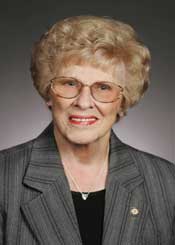 Oklahoma State Rep. Sue Tibbs, a Republican who had represented District 23 in east Tulsa since her election in 2000, died Friday, the end of a long battle with ovarian cancer. Because of term limits, this had been her final session.
Oklahoma State Rep. Sue Tibbs, a Republican who had represented District 23 in east Tulsa since her election in 2000, died Friday, the end of a long battle with ovarian cancer. Because of term limits, this had been her final session.
Services will be held at 2 p.m., Wednesday, April 11, 2012, at Grace Church, 9610 S. Garnett. In lieu of flowers, donations in Sue's memory may be made to Free in Christ Ministries or Family & Children's Services Women in Recovery program.
Sue Tibbs was a gracious lady and a fighter.
I had the honor of seeing that grace and fighting spirit first hand, working with Sue Tibbs on several of her elections, including her second attempt at the seat in 1998, one which would set the stage for her election the next time around. Sometime that spring, I got a call from Sue's campaign manager. They had received a CD from the state GOP headquarters containing a database of voters; Rich Gradel, then the county GOP chairman, had told her I might be able to help turn the database into lists Sue could use for knocking doors, sending postcards, and making phone calls to likely voters.
Sue was trying to unseat the incumbent Democrat, Betty Boyd, a legendary and beloved local television personality. I recall gathering in the Tibbs home with Sue, her husband Homer, and a small but dedicated group of volunteers to plan out the campaign.
Sue worked relentlessly, going door-to-door in the hot summer sun to talk to voters. Although 1998 wasn't a particularly good year for Republicans nationally and despite the handicap of running against a household name and an incumbent with massive financial support from special-interest PACs, Sue lost by only 120 votes. The next time around, in 2000, Sue beat Betty by 417 votes.
She was reelected without opposition in 2002. In 2004, Sue beat a primary challenger, and, in the general election, she handily defeated the son of a prominent attorney who had been parachuted into the district by the Democrats to run against her. She was a Democrat target again in 2006 and 2008, winning by solid margins both times. In her final race in 2010, she took 67% of the vote.
One of Sue Tibbs' signature issues was voter fraud, a cause with its roots in what she witnessed in her 1986 campaign for House 23 against then-incumbent Kevin Easley. Each year she proposed a bill to require voters to show a photo ID, but passage had to wait until 2010, going directly to the voters, who overwhelmingly approved this basic fraud prevention measure and protection for the value of their votes. She lived to see the law in effect and the fear-mongering of its detractors disproved by experience.
Sue Tibbs was also a cosponsor of the constitutional amendment banning the use of sharia law in Oklahoma courts, another measure approved overwhelmingly by the voters, but blocked for now by the courts. She was honored last year by Eagle Forum of Oklahoma for her efforts.
A profile of Sue Tibbs last month by CapitolBeatOK highlights her efforts in the field of corrections reform. One of the bills she authored this year would make it easier for ex-cons to get certain state professional licenses, so that only past offenses relevant to the license sought would block an applicant.
She continued with reflections on priority issues, saying she is intensely focused on "the prison reform area. Being able to recognize that some people have made mistakes and wish to have a second chance, giving them that opportunity and truly seeing these programs work, changing lives for whole generations...."I truly believe Oklahoma needs to rewrite our criminal code. Kansas compares in population with Oklahoma and, a few years ago, decided they needed to rewrite their code.
"Their prison population dropped, saving Kansas taxpayers an incredible amount of money. This money was then able to spent on other services, or returned to the taxpayers.
"Oklahoma spends about $500 million a year on Corrections funding, believing we were getting smarter on crime, when in fact we weren't. We live in the Bible Belt where we believe in forgiveness and second chances. We must continue to work toward that end, not re-election."
State Rep. Pam Peterson, who shared an apartment with Tibbs for many years during the legislative session, said:
"She is an amazingly loyal person. When she's with you, she's with you."When she speaks on the floor, everybody listens. She is greatly respected. She's not flashy. She speaks very intentionally. She has power and influence because of who she is.
"The tenacity of the woman is just incredible. She's not the youngest member but she could run circles around many of the others, including younger members."
Our prayers are with Homer and their daughters and grandchildren for comfort in their loss.
MORE:
State Rep. Jason Nelson has details of services for Sue Tibbs and his own remembrance.
As regular readers will attest, I like coffee almost as much as I like coffeehouses, and I keep my eyes out for locally-owned coffeehouses everywhere I go. When I'm in BA and in need of some good coffee and a place to do some work over a breakfast sandwich, I head to Stonewood Cafe.

Midtown is not the only place in the Tulsa metro area to find cool little coffeehouses. If you're out in Broken Arrow, Stonewood Cafe, just north of the Broken Arrow Expressway on Elm Place (161st East Avenue) is a great place to enjoy a cup of coffee, have a meal, get some work done, and meet with friends. Stonewood Cafe serves coffee roasted by Double Shot Coffee Company, with four different coffees from around the world brewing at any given time.
A while back they solved a logistical problem -- not enough tables near outlets -- by installing high-backed wooden booths along the wall, each booth with its own outlets.
They've also expanded their menu in recent months, adding specialty beers and wine and a variety of sandwiches, wraps, pizzas, and appetizers.
To celebrate these and other changes, this weekend (Thurs-Sat, April 5-7, 2012), Stonewood Coffee and Cafe is celebrating its grand reopening with live music, giveaways, and a new display of art by local artists. Giveaways will include a night at the Towne Place Suites (just next door), coffee beans and mugs from Double Shot Coffee Company, a Monin Syrup gift bag, t-shirts, gift cards for Stonewood and neighboring businesses, and more.
Stonewood Cafe, 449 W. Stonewood Drive, Broken Arrow, OK, opens at 6:30 am Mon-Fri, 8 a.m. on Saturdays. It closes at 9 p.m. Mon-Thurs, 11 p.m. Fri-Sat. Closed Sundays.
UPDATE 2012/04/03: The City of Tulsa Planning Department has issued a "policy analysis" of the Pearl District regulating plan, "a supplemental review of adopted plans of the City intended to provide the Planning Commission with a full understanding of the issues and policies created to address them." Attached at the end of the document is a three-page memo describing concerns raised at the public meetings on the plan and how they can be addressed.
On Wednesday, April 4, 2012, at 1:30 pm in the City Council chambers at City Hall, 2nd & Cincinnati, the Tulsa Metropolitan Area Planning Commission (TMAPC) will hold a public hearing regarding the proposal to expand the Pearl District land-use regulations from its current pilot area to the entire 300 acres of the neighborhood. The Pearl District plan, developed over a 10-year period by area residents and business owners, faces opposition fueled by disinformation from the Build Anything Anywhere (BAA) Bunch, even though it actually expands the development options available to property owners in the district. Supporters of positive, growth-oriented, neighborhood-driven development policy need to email the TMAPC (bhuntsinger@incog.org) and, if possible, show up on Wednesday to support the Pearl District plan.
The proposed land use regulations implement an infill development plan that has been a part of the City's comprehensive plan since 2005, a plan that was the culmination of a grassroots-driven planning process that began in 1991. The proposed area -- bounded by I-244, the east leg of the Inner Dispersal Loop, 11th Street, and Utica Ave. including the lots facing the south side of 11th and the east side of Utica -- is identical to the area covered by the 2005 6th Street Infill Plan. The opponents who claim that this was a complete surprise and hasn't received sufficient scrutiny are, to be blunt, full of manure. Some of those opposing the current proposal noisily protested the infill plan's adoption seven years ago.
For the BAA Bunch, it's not enough to be able to throw up cookie-cutter suburban development on the other 99.75% of Tulsa's land area. They want to impose that same style of development on one of the few pedestrian-oriented neighborhoods in Tulsa that hasn't been wrecked by urban renewal, expressway construction, or institutional hypertrophy.
Contrary to rumor, the proposal grandfathers existing buildings, allows buildings to be rebuilt as-is in the event of a fire or other disaster, allows for some expansion of an existing building without requiring conformance to the new code, and was developed in public with the involvement of homeowners, developers, business owners, and other community leaders from around the neighborhood.
Although our regional peer cities -- Oklahoma City, Dallas, Fort Worth, Austin, Wichita, San Antonio, Kansas City, Little Rock, Denver, among many others -- have had form-based requirements in their zoning codes for decades, Tulsa's BAA bunch bleat like sheep at the slaughterhouse any time the most modest design guidelines are suggested. This is merely the latest example of their obstructionism.
Meanwhile, planning staff at INCOG seem as if they're trying to sabotage the plan. The backup material connected to Wednesday's agenda consists of two illegible maps and a few letters of protest from people who don't appear to have read the proposal. There is no "request for action," no legal document defining exactly what is proposed to be adopted, no explanatory material of any kind. Although the City of Tulsa pays INCOG handsomely to analyze zoning proposals and make recommendations in accordance with the City's comprehensive plan, INCOG has not made public any analysis or recommendations on this proposal. If INCOG development staff were willing, they could, as part of their analysis, dispel the inaccurate rumors about the effects of the proposal.
While the lack of complete online posting is not technically a violation of Oklahoma's Open Meetings law, it certainly violates the spirit of the law. Wednesday's hearing should be continued or postponed until all relevant material has been posted online for at least two weeks.
(It's overdue for Tulsa to fire INCOG as its land-use planning agency. The city would continue to work with INCOG on transportation planning and dialogue with other city, county, and tribal governments in the region, while bringing land-use planning in-house. Wayne Alberty's impending retirement as head of INCOG's development services department would be an excellent time to make the move. We could save INCOG the trouble of hiring a replacement.)
Approving the Pearl District regulatory plan for the entire district is an important step in fulfilling the promises made by city leaders to area residents and business owners for more than two decades, beginning with the 11th Street Corridor Task Force in the early '90s, the Oaklawn redevelopment committee in the late '90s, the 6th Street (Pearl District) Task Force in the 2000s, the 6th Street Plan approved in 2005, and Tulsa's new comprehensive plan (PLANiTULSA) approved in 2010.
The existing use-based land use regulations date back to the '70s and '80s, a typical post-World-War-Two zoning code focused on new development on undeveloped suburban land. Neighborhoods like the Pearl District, which developed just after World War One, were treated almost as an afterthought in the zoning code and comprehensive plan, a dumping ground for whatever activities weren't desired in the nice new parts of the city. It didn't occur to planners of the period that some people might prefer to live, work, and play in a neighborhood convenient to downtown that was built around people rather than cars.
The subdivisions that make up the Pearl District were platted by 1915, and were fully developed by the early '20s. From the beginning there were industrial uses along the MK&T mainline (including a cotton mill and a glass factory) and mixed in with residences and commercial uses. Three streetcar lines served the neighborhood -- a Tulsa Street Railway branch on 1st street, another on 5th Place (Fostoria), turning onto Quincy Ave., and an Oklahoma Union Traction branch along 11th Street. Route 66's original alignment traveled 2nd Street through the neighborhood from 1926 to 1932; US 66 was rerouted to 11th St. in 1932. Broadcaster Paul Harvey grew up in the neighborhood on 5th Place, attending Longfellow School, which was once located on the northwest corner of 6th and Peoria.
The neighborhood was still regarded as a pleasant place to live in the late 1970s, according to newspaper accounts quoting Pearl District leader Dave Strader, who moved into the neighborhood circa 1979. But in the last half of the '80s, prostitution, drug use, and gang activity moved into the area.
A determined group of local residents and business owners were persistent in getting the city to take action to clean up the area, facing death threats from the criminals who were abusing their neighborhood. An 11th Street Corridor Task Force was created in 1991, resulting in a plan that was adopted by the city in 1993. A TIF district was established, and some of the increased property tax revenues generated by The Home Depot became available for implementing the 11th Street Corridor plan.
One of the plan's recommendations involved redeveloping Oaklawn, a small subdivision wedged between Central (now Centennial) Park and Oaklawn Cemetery. In 1999, the Tulsa Development Authority issued a Request for Proposals and formed a task force to evaluate and recommend one proposal for adoption. I served on the task force along with Strader, Paul Wilson of Twenty-First Properties, Dwain Midget from the Mayor's office, and City Councilor Anna Falling, among others. The Village Builders, a team led by developer Jamie Jamieson, was the unanimous selection. Unlike some of the proposals, the Village at Central Park proposal was designed to connect with and encourage improvements in the surrounding area. In the decade since, the area has seen a new Family and Children's Services building, refurbishment of an existing building into a boutique hotel, a facelift for the VFW in the old armory building, the reopening of the historic Church Studios, with many more projects currently in the works.
(One of the unsuccessful proposals came from a leading detractor of the current Pearl District plan. He wanted to build a gated community walled off from the surrounding neighborhood.)
Jamieson immediately joined forces with the Central Park Neighborhood Association. They succeeded in becoming one of three target areas for pilot small-area infill plans as recommended by the 1998-9 Infill Task Force. The new 6th Street Task Force began meeting on a monthly basis sometime around 1999 or 2000. The group eventually adopted the name "Pearl District," inspired by the original name of Peoria Avenue in the area.
One of the challenges faced by the Pearl District group was stormwater control. The Elm Creek basin was the last watershed in the city where no stormwater improvements had been made, and the potential for flooding was a deterrent to redevelopment. The stormwater plan in place would have obliterated Centennial Park to create a giant, treeless detention pond. The Pearl District task force proposed and won acceptance of an alternate plan, with a smaller, landscaped pond in Centennial Park, a new recreation center, and two additional small ponds in other parts of the district. The result is one of the city's most beautiful vistas, looking west across the Centennial Park pond to the downtown skyline.
The 6th Street task force report was issued and adopted by the City in 2005, covering the exact same area now covered by the proposed form-based land use code.
The Pearl District was originally developed under land use regulations that were much less stringent than those currently in force. The new Pearl District form-based code would restore a great deal of flexibility for landowners, while preserving its pedestrian-friendly character, and repairing the urban fabric where it's been compromised by the careless planning decisions of the past. Under the new Pearl District code, you can use more of your land area for your building, because there are smaller, more reasonable requirements for parking, landscaping, and setbacks. You have more options for what uses are allowed on your property, without needing to seek special permission from the city.
Under the current zoning code, any new development in this district requires some combination of rezoning, special exceptions, and zoning variances. It adds expense and uncertainty, hindering redevelopment. The proposed new land-use code is clear and specific, and its aim is to reduce drastically the need to spend money on lawyers and paperwork to move forward with a new development.
If you want to support efforts to revitalize a key inner city neighborhood, one that links downtown, Cherry Street, and the TU campus, if you want the City of Tulsa to keep its promise to a group of long-suffering property owners who have been working on this for two decades, please email (bhuntsinger@incog.org) or attend in person to show your support for the Pearl District plan.
MORE:
The Pearl District Association website.
The 6th Street Task Force Infill Plan, adopted as part of the City's comprehensive plan in 2005. There is a very informative and comprehensive section on the history of the Pearl District's development and the history of the city's revitalization plans and efforts.
My UTW column from November 2007 on teardowns and infill development, in which I mention that the Pearl District was seeking to become a pilot area for a form-based land-use code. That's almost five years ago.
My UTW column from February 2009 on the Pearl District's creative approach to stormwater mitigation, related links, and then-UTW reporter Mike Easterling's July 2011 story on the same topic.
From 2006, a modest suggestion that the private foundation wanting to spend $100 million of its own money (plus $600 million from taxpayers) to build a pedestrian-friendly district on new islands in the Arkansas River could instead implement the Pearl District plan and revive a pedestrian-friendly district for a fraction of the cost.
My very first UTW column in September 2005 dealt with the the need to have at least one truly walkable neighborhood in Tulsa for the sake of Tulsans with disabilities. Although I didn't mention the Pearl District by name, it's a prime location for a walkable neighborhood to serve disabled Tulsans by virtue of being near the Ailene Murdock Villa and the Center for Individuals with Physical Challenges.
Via TulsaGal, we learn of a cool new way to use modern technology to explore local history.
In my Government 2.0 feature story for This Land, I mentioned last October's Tulsa Hackathon, in which teams of beer-and-pizza-fueled developers created mobile applications for local agencies and non-profits.
One of the apps born at that time has now been officially released by the Tulsa City-County Library and is available in Apple's App store. It's called "Tulsa Then and Now: Mapping the BFC." From the description:
The Tulsa City-County Library's "Tulsa Then and Now: Mapping the BFC" app provides access to approximately 300 photographs selected from the Beryl Ford Collection. It includes streets, buildings, and residences. Browse, search, and view these historic images that document growth and change in Tulsa. The photographs have been mapped to allow for location-based browsing and to enable you to find images nearby your current location.When you find a remarkable image from decades ago, share it via email, Twitter, or Facebook. Snap your own photo of present-day Tulsa and send it side-by-side with the historic image, creating your own custom Beryl-O-Gram. You can even use your iPhone's camera to overlay the historic photograph with your current view.
Features:
· Access hundreds of historic images
· See a map with drop pins that represent the photos
· Search for a photo or location
· Browse photos taken nearby your current location
· Share images through email
· Share images on Twitter
· Share images on Facebook
I don't have an iPhone, so I can't try this out myself, but I hope my iPhone-equipped readers will give it a try and send me the Beryl-O-Grams you create.
MORE:
There's another Tulsa Hackathon just around the corner, April 13-15, 2012, with a focus on providing convenient access to open data.
You can browse the Tulsa Library's digital collections online, including photos and items from the Beryl Ford Collection.
Many photos from the Beryl Ford Collection have been posted to Flickr in search of help in identifying unknown people and places.

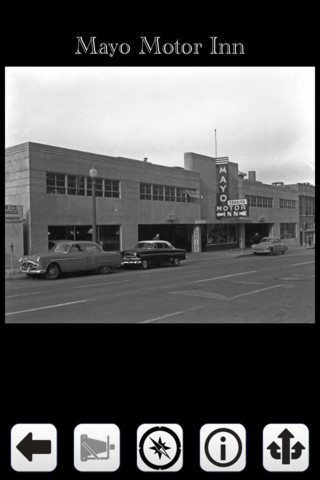
I received word from Chris Medlock that Ron Paul supporters won all three national delegate slots and all three alternate slots at the Saturday, March 31, 2012, Oklahoma 5th Congressional District Republican Convention. Medlock reports that turnout was light (only about 200 delegates), and that runoffs for each delegate slot favored the Ron Paul supporter by about a 52% to 48% margin, meaning that higher turnout by the non-Pauls could have meant a complete shutout of the Ron Paul fans.
In the March 6, 2012, Oklahoma primary, Ron Paul finished fourth in the 5th Congressional District with 10.4% of the votes cast.
Although the three delegates are bound by state party rules and the results of the March 6 primary to cast one vote each for Mitt Romney, Rick Santorum, and Newt Gingrich, if no presidential candidate gains a majority of delegates on the 1st or 2nd ballots at the Republican National Convention, or if their candidate releases his delegates, the delegates would then be free to vote their personal preference. It is possible that if enough Ron Paul supporters are elected to go to Tampa, they could pass party rules that would free all delegates from any binding commitments.
I am hoping to get specific numbers -- ballots cast, voting by round -- to analyze what happened. I am told that the 5th CD used a different runoff method than we've used since 2000 here in the 1st CD, and it's possible that their runoff method would allow the will of the majority of delegates to be thwarted, depending on the number of candidates in the race. The 1991 Louisiana governor's election is a classic example of a two-person runoff for a large field resulting in two finalists who are each loathed by a majority of the electorate.
MORE: What happened at the CD 5 convention is a continuation of the Ron Paul campaign strategy I wrote about in 2008




